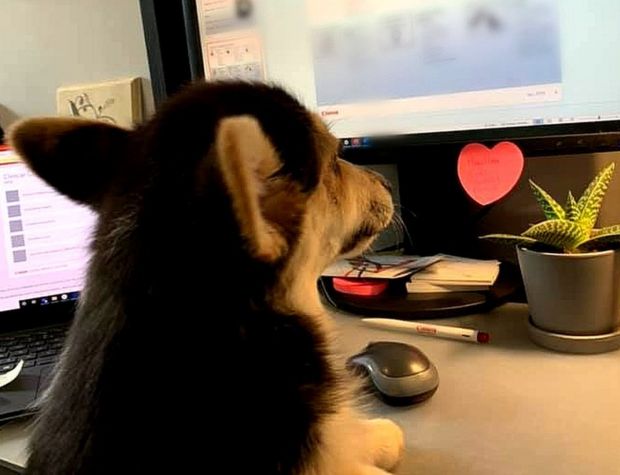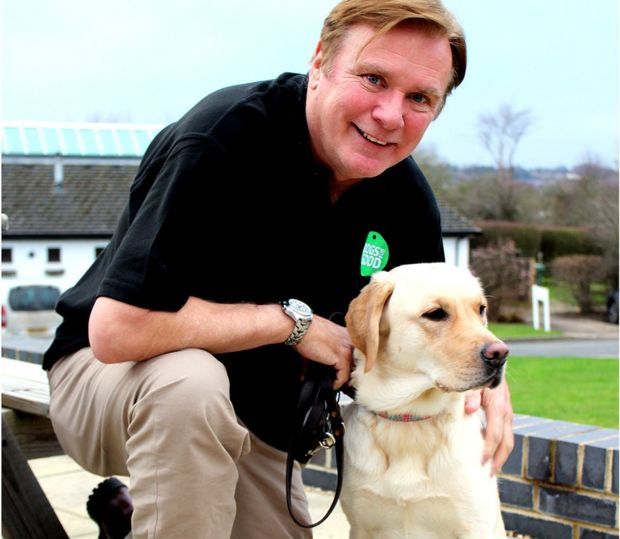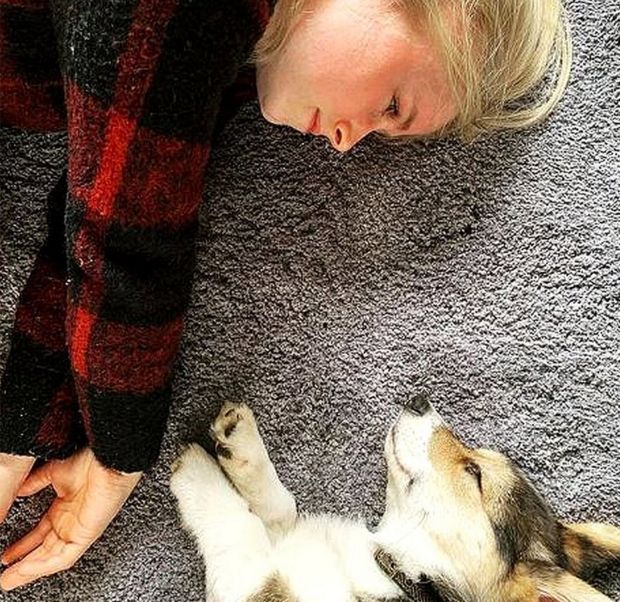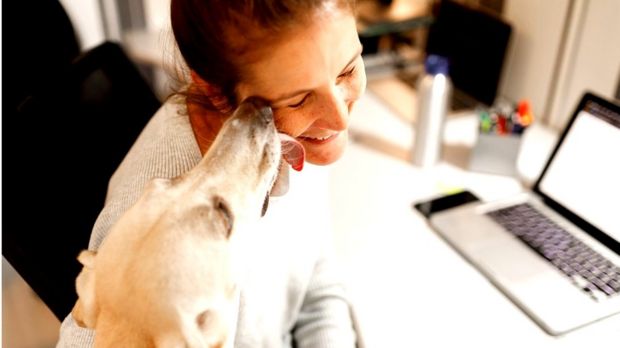
How do you ease your dog out of lockdown?
by Debbie JacksonThe end of lockdown is just about visible on the horizon.
But as we plan for life outside the work-from-home bubble, dog owners are being urged to consider how their pets might cope with our "new normal".
After more than two months of staying at home, working from home and staying close to home on walks, the easing of restrictions could have an adverse effect on animals.
A Glasgow-based dog expert has issued some invaluable guidance.
Separation anxiety
He says easing dogs out of lockdown is much more complex than being able to go for a longer walk or leaving them in the house more and it could manifest in upsetting physical symptoms.
Dr Chris Muldoon, operations manager at the charity Dogs for Good, has many years experience of training dogs. He says separation anxiety could be a real threat when owners go back to work.

He believes owners will have to gradually prepare their dogs for the change and reintroduce them to old routines so they don't struggle to cope once coronavirus social distancing measures are lifted.
'Elevated heart rate'
Dr Muldoon said: "Separation anxiety is triggered by the removal of something in the dog's life that is a constant part of its life at the moment and generally that is people.
"So if you leave the home at 07:30 in the morning, you grab your keys and head out of the door these can be triggers for the dog to realise that the rest of the day is going to be spent without the person they would rather be with."

Chris says the dog's reaction can manifest in physical behaviour - like becoming hyperactive for the period of time before its owner leaves home.
He said: "Even after you have left, you may get complaints from the neighbour that your dog has been continually barking or you may get a destructive dog that potentially is tearing up bits of the house
"And you may get reactions that are just anxiety-based whining, elevated heart rate, respirations, signs the dog is struggling."
'Our puppy only knows this lockdown situation'

Corgis Samson and Ellie are the pride and joy of Rebecca Hall and Andrew McLaughlan who live in Glasgow.
They have no worries about Samson, who takes everything in his stride, but Ellie was a young puppy when lockdown started and she missed socialising and separation training carried out with the older dog.
The dogs' routine changed when their owners became confined to home.
Rebecca said: "Now we are in all the time, Samson gets sick of us and needs his space so we have given him a safe space in a quiet corner of the room. He was used to two walks a day and naps after his walks but with the allowance of one outdoor trip a day he has only had one walk and not had the peace and quiet for his naps."
"Ellie is a puppy who now knows nothing other than having humans around 24/7 and now doesn't know what it's like to be left alone."
She has tried to prepare the dogs by leaving them alone for short periods.
"I think Samson will adjust back to normal life quite well, but with Ellie it's going to cause some separation anxiety and I also think she has missed out on a lot of socialisation.
"She hasn't met many other people other than ourselves and neighbours, and she is beyond the puppy weeks that are essential for exposing them to things, so we are already seeing she has some fear of new humans and especially other dogs."
How can you take your dog out of lockdown?
Dr Muldoon has some tips for getting dogs used to their owners leaving the home again.
They include:
Pretending to go to work
Wearing office clothes in the house and picking up your keys and going outside for a few minutes can get the dog used to you leaving again. Mix up the times you try this and extend the amount of time you spend away.

Don't make a fuss
When you come back in, don't make a fuss of the dog. Wait until dog settles and then reward the dog for settling down.
Be patient and don't get negative
If the dog barks, don't react. The worst thing for anxiety is to create more anxiety.
Be responsible
Coming out of lockdown people will be allowed to take longer walks and that will mean interacting with other dogs.
Dr Muldoon said: "If you were a responsible dog owner before lockdown, be an even more responsible dog walker now because your dog might not have interacted with another dog for months or longer so expecting it to behave as it did before is a bit unrealistic,
"Put some boundaries on that keep your dog on a lead interactive with other dogs in a controlled environment and note any changes in your dog's behaviour.
"Be astute about your dog's behaviour. "